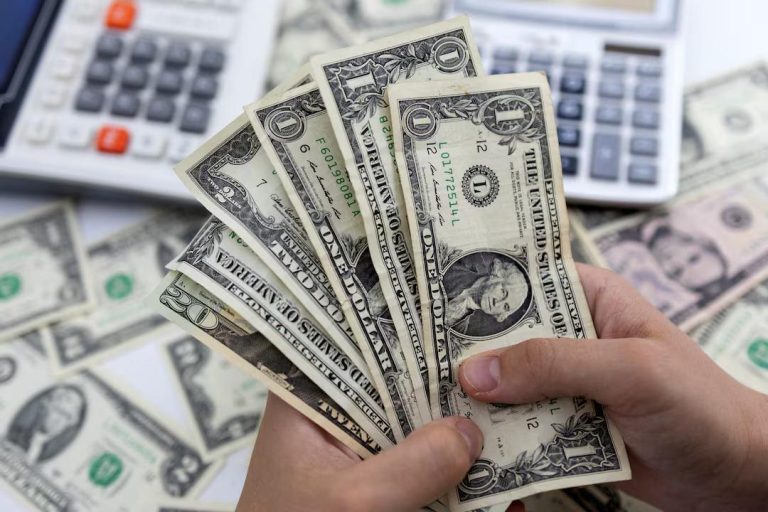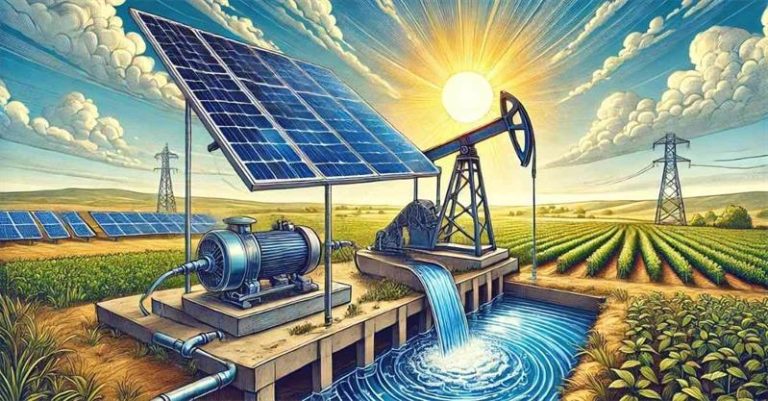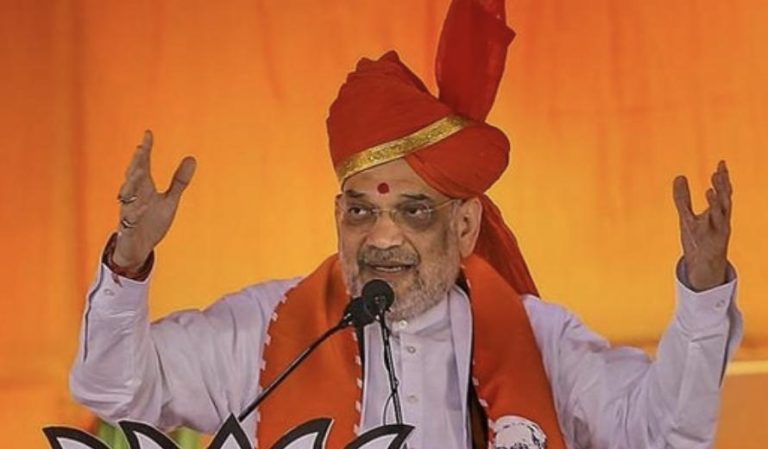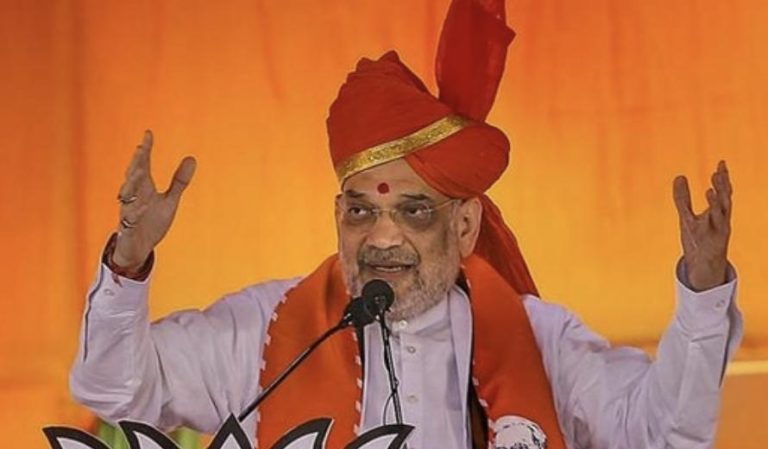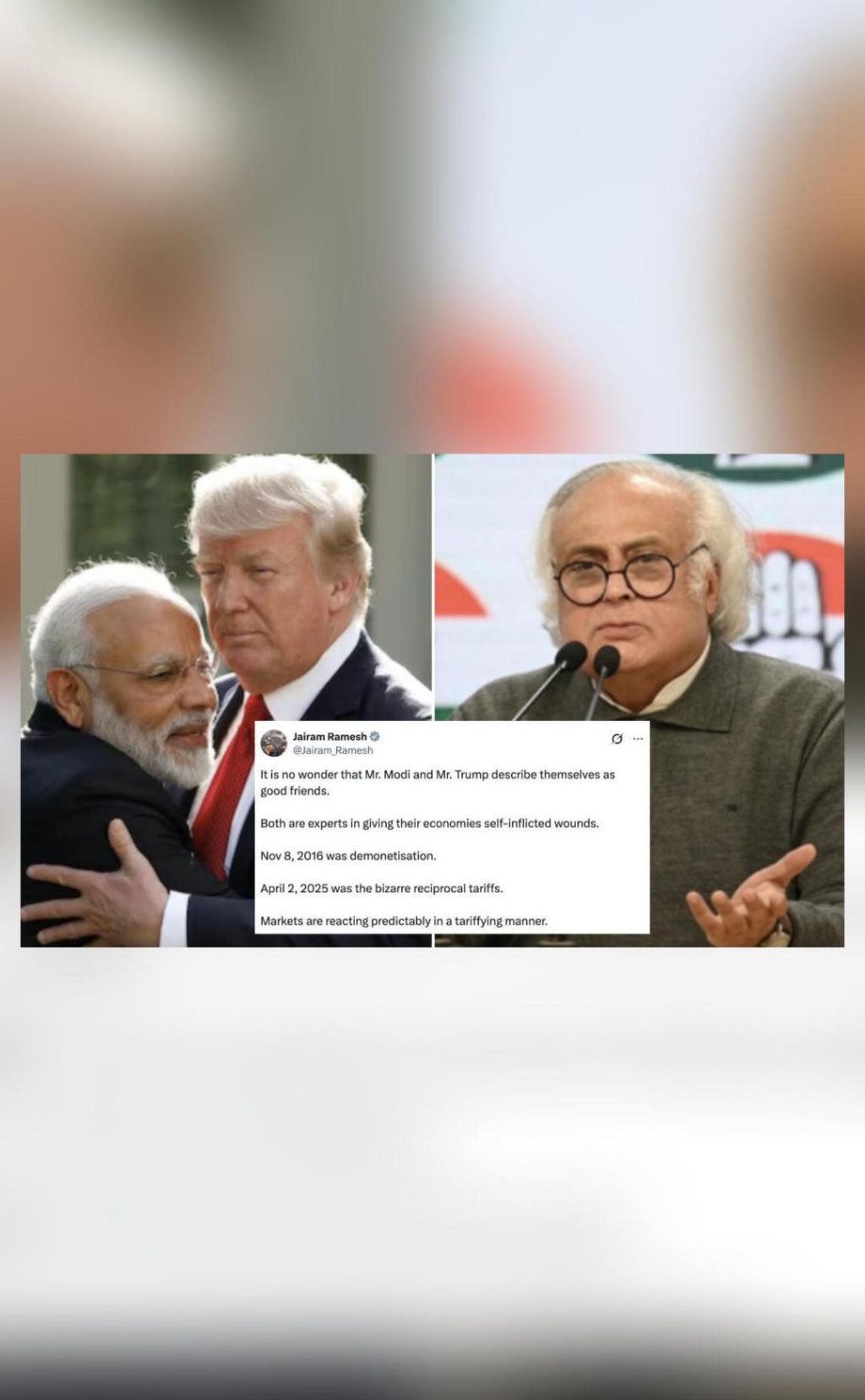
Modi & Trump giving their economies self-inflicted wounds: Jairam
The recent global market crash has left many wondering about the consequences of the decisions made by world leaders. The latest tariffs imposed by the White House, as announced by US President Donald Trump, have sent shockwaves across the globe, causing a significant decline in stock markets. In India, the Sensex opened over 3,900 points lower, while the Nifty opened over 1,000 points below. Amidst the chaos, Congress leader Jairam Ramesh has criticized both Prime Minister Narendra Modi and President Trump, stating that they are experts in giving their economies self-inflicted wounds.
In a tweet, Jairam Ramesh wrote, “It’s no wonder that Mr. Modi and Mr. Trump describe themselves as good friends. Both are experts in giving their economies self-inflicted wounds.” His statement suggests that both leaders have a track record of making decisions that harm their own economies.
The tariffs imposed by the US government are a prime example of this. The move is expected to increase the cost of goods imported from China, which could lead to inflation and a decline in consumer spending. This could have a ripple effect on the global economy, leading to a slowdown in economic growth.
Similarly, in India, PM Modi’s government has also been making decisions that could harm the economy. The recent decision to impose a Goods and Services Tax (GST) on electric vehicles, for instance, has been widely criticized. The move is expected to increase the cost of electric vehicles, making them less attractive to consumers and potentially slowing down the growth of the electric vehicle industry in the country.
Jairam Ramesh’s statement is not the only criticism of PM Modi and President Trump’s economic policies. The international community has also been expressing concerns about the impact of their decisions on the global economy.
The International Monetary Fund (IMF) has warned that the tariffs imposed by the US government could lead to a decline in global trade and economic growth. The World Trade Organization (WTO) has also expressed concerns about the impact of the tariffs on the global economy.
In India, the Reserve Bank of India (RBI) has also warned about the potential impact of the tariffs on the economy. The RBI has stated that the tariffs could lead to a decline in exports and a rise in imports, which could lead to a widening of the trade deficit.
Despite the criticism, PM Modi and President Trump remain committed to their economic policies. PM Modi has stated that the government is committed to making India a $5 trillion economy, while President Trump has stated that his tariffs will help to protect American industries and jobs.
However, the recent market crash and the decline in economic growth suggest that their policies may not be as effective as they claim. The tariffs imposed by the US government, for instance, have already led to a decline in US-China trade, which could have a negative impact on the global economy.
In conclusion, Jairam Ramesh’s statement highlights the risks associated with the economic policies of PM Modi and President Trump. While they may claim that their policies will help to boost their economies, the reality is that they could be giving their economies self-inflicted wounds.
The global market crash and the decline in economic growth are a stark reminder of the importance of careful economic planning and the need to consider the potential impact of decisions on the global economy. It is only by taking a more nuanced and thoughtful approach to economic policy that we can ensure a stable and prosperous future for all.
Source:

